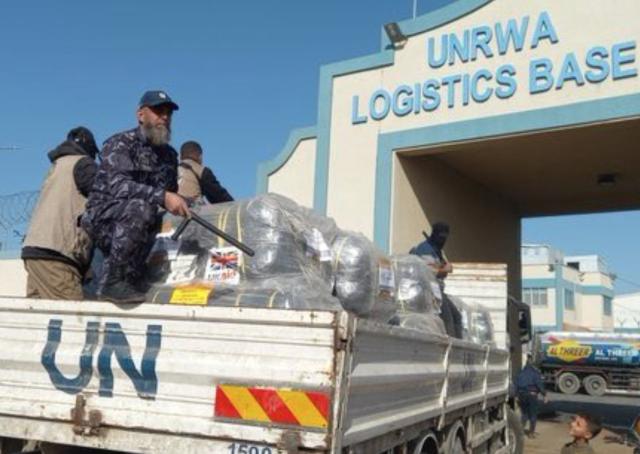The recent move by the Biden administration to temporarily suspend funding to the United Nations Relief and Works Agency (UNRWA) underscores a significant concern regarding the alleged involvement of UNRWA staff in Hamas-led attacks against Israel. This action reflects a growing apprehension about the purported infiltration of terrorist elements within humanitarian organizations, particularly those operating in conflict zones.
State Department spokesperson Matthew Miller expressed grave concerns about the possible participation of twelve UNRWA employees in the Hamas terrorist attack on Israel on October 7. This alarming revelation prompted a thorough review of the funding provided to UNRWA, a critical step in ensuring that American taxpayer dollars do not inadvertently support activities that undermine the peace and security of Israel.
“The Israeli Authorities have provided UNRWA with information about the alleged involvement of several UNRWA employees in the horrific attacks on Israel on 7 October.
— Kassy Dillon (@KassyDillon) January 26, 2024
To protect the Agency’s ability to deliver humanitarian assistance, I have taken the decision to immediately…
The Biden administration had previously allocated $75 million to UNRWA in October, a decision that bypassed a congressional block established due to longstanding criticisms of the agency. Among these criticisms are allegations that Hamas members have been employed by UNRWA, raising serious questions about the organization's neutrality and the potential misuse of its resources.
UNRWA Commissioner-General Philippe Lazzarini's announcement of an internal investigation in response to Israeli intelligence is a significant development. The swift termination of the contracts of those implicated in the attacks signals a commitment to accountability and the rejection of terrorism. However, this response also highlights the challenging reality of ensuring that humanitarian aid in conflict zones does not become entangled with the activities of terrorist groups.
BREAKING: 12 employees of @UNRWA, an organization which the US funds, reportedly took part in Hamas’ Oct 7th attack on Israel where hundreds were murdered and taken hostage including Americans.
— Libs of TikTok (@libsoftiktok) January 26, 2024
The US has announced they’re pausing funding pending an investigation.
DEFUND THE… pic.twitter.com/FjrX24wii6
The scale of the October 7 attack, with its devastating toll on human life and the taking of hostages, has brought into sharp focus the complex interplay between humanitarian assistance and security concerns in conflict areas. This incident underscores the critical need for rigorous oversight and due diligence in the operation of international aid organizations, particularly in regions where terrorist groups like Hamas are active.
While UNRWA's role in providing essential services to Palestinian refugees is undeniable, the expanding scope of its operations since its inception in 1948 raises questions about its long-term objectives and governance. The agency's involvement in regions controlled by groups like Hamas and Hezbollah, coupled with allegations of using educational materials that incite antisemitism and deny Israel's right to exist, has made UNRWA a focal point of controversy and criticism.
To use UNWRA as a credible or impartial source of information is like using Hamas handouts. Ridiculous and misleading. https://t.co/qceiuKmpHg
— Jonathan Conricus (@jconricus) January 26, 2024
The resumption of funding to UNRWA under the Biden administration, following its suspension by former President Trump, reflects the ongoing debate over the best approach to supporting Palestinian refugees while safeguarding Israel's security interests. This latest development is a reminder of the intricate challenges faced in balancing humanitarian needs with the imperative of preventing the exploitation of aid organizations by terrorist groups.


